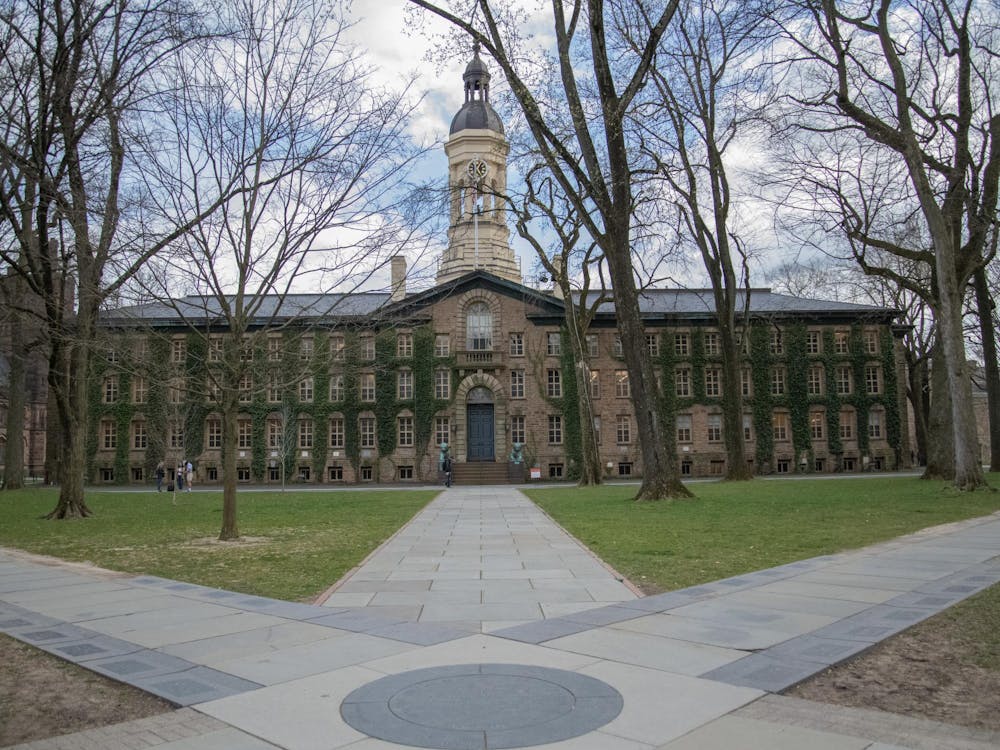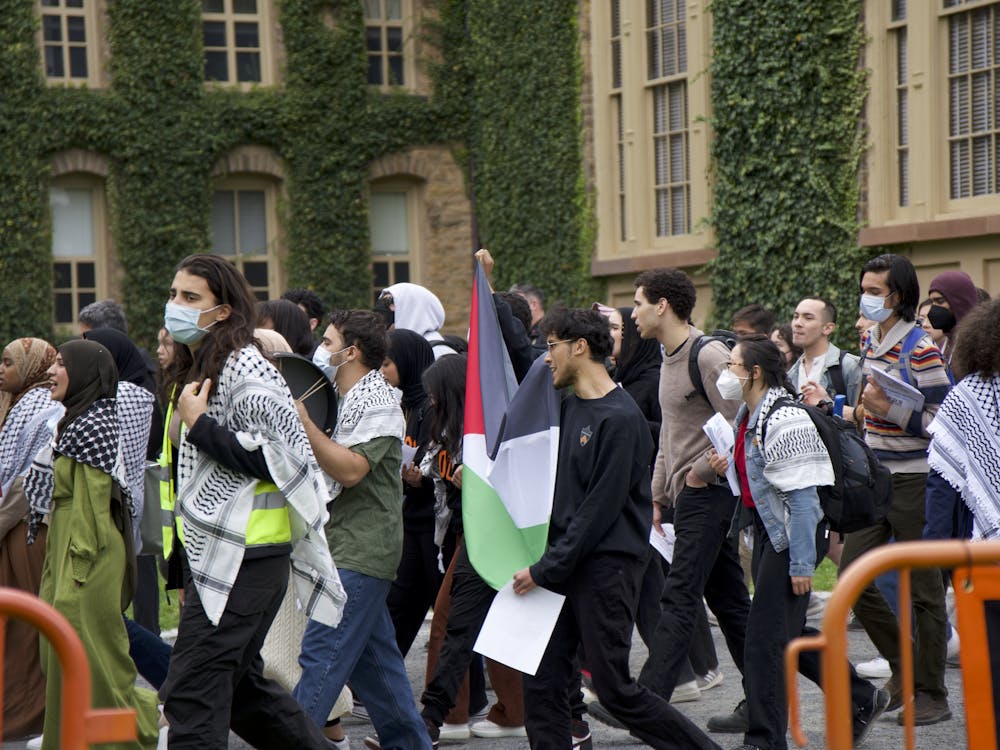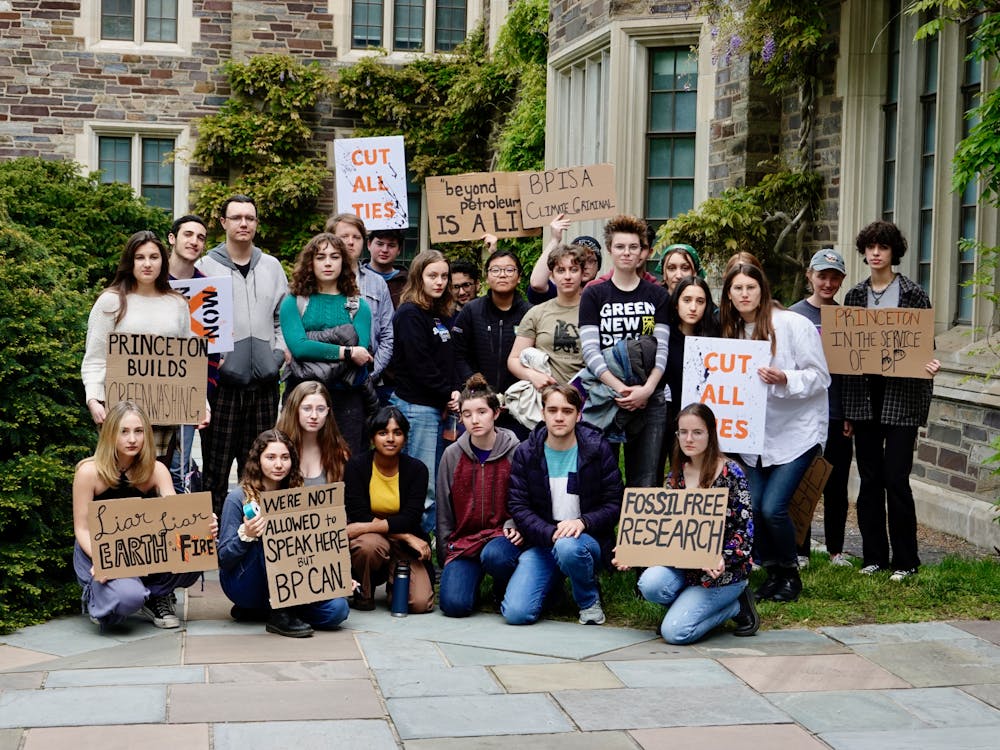When I received an email from the Undergraduate Student Government containing details on how to vote on the widely talked about Bicker referendum, I rolled my eyes and deleted it in a snap.
I disagreed with the referendum for a number of reasons. I am a happy member of a sign-in club and have close friends who are independent, eating at dining halls and members of Bicker clubs. I also happen to dislike policing when people — students — have the capabilities to address issues personally and independently. But more than that, I was under the impression that many other people agreed with these sentiments, too. Based on Facebook posts, conversations I had with friends and just general talk I had heard during dinner or after classes, I had assumed a large percentage of the student body thought “Hose Bicker” was unnecessary.
Imagine my surprise, then, when I received another USG email containing the results of the Bicker referendum. Though the number of those against the referendum outnumbered those who favored it, the margin by which it did so was surprisingly low. About 56 percent of those who voted said no, while a little under 44 percent said yes. I began to question what I had previously presumed about popular opinion on Bicker. Did such a large portion of the undergraduate student body really want to do away with the process? These thoughts reached a halt, however, when I saw the actual amount of students who had voted on the referendum. Of the 5,200 undergraduate students, only 1,988 had voted. That is significantly lower than half of the student body.
I initially was surprised by the low voter turnout. Eventually, however, I realized that several students may have had the same thoughts as I did: There’s an extremely small chance this will pass, as most people I’ve talked to are against the measure. Even if it does pass, the likelihood of any serious change is also small, as the eating clubs are independent institutions. Finally, this referendum really affects me in no way.
This line of thinking may be fairly harmless in a university setting. While the types of things we vote on through the USG affect campus culture and aspects of our college experience, they are not central to the lives we will live after graduation.
However, these same excuses cannot be said for referenda we vote on at the local or state level, or for those politicians that we choose to represent us in Congress. Those votes — or thereof — permeate parts of our lives even when we are unaware of them. Moreover, they do not begin to do so after we leave Princeton; they do so now.
Only a week or so ago, I was in my American politics precept, discussing Congress, when our preceptor asked us how many of us had actually voted in an election — presidential, Congressional or even local. Few hands went up. Even including students under the voting age and the one international student ineligible to vote, the number was surprisingly small.
When our precept asked why, the reasons for not voting varied. Some said they did not vote because they weren’t informed enough, others said they simply hadn’t gotten around to it, someone said it didn’t matter enough to them, and some thought that their votes simply did not matter. These are all often cited reasons why large numbers of people—particularly young adults—do not vote. It’s easy to understand why someone would be apathetic to voting considering the state of Congress as of late. It’s not illogical that people don’t vote on something that they don’t consider directly affects them.
Yet, the fact remains that votes must matter. The historical struggle for enfranchisement of marginalized groups — both in and outside the United States — tell us as much. And we’ve seen the effects that voting can have both nationally — with Senator Al Franken’s 2008 election to the Senate decided by less than 300 votes — and on campus – with USG’sdecision to sign an amicus briefon the behalf of the plaintiffs inLewis v. Harris, a gay marriage case before the New Jersey Supreme court in 2005.
We have seen the direct effects that our opinions can have. And so, if something does not seem critical to our personal lives — whether it be a Bicker referendum or student election — we must ask ourselves, if our vote doesn’t count now, if our voices don’t matter here, when and where will they?
Although we are in college for only a short amount of time (in the grand scheme of our lives), much of what we do here lays the foundation for what we pursue — and how we pursue it — after exiting FitzRandolph Gates. Academic courses drive personal interests and change our professional desires. Student organizations inform us of what matters to us outside of the classroom, and often, students stay dedicated to these themes and missions within or outside of their careers. Our independent work can spark curiosity and lead to further research. What we do at Princeton doesn’t narrowly restrict our lives’ paths, but these patterns give a glimpse of what is to come. So while voting on campus may not seem critical, doing so may be critical in determining whether we vote in our greater civic sphere.









